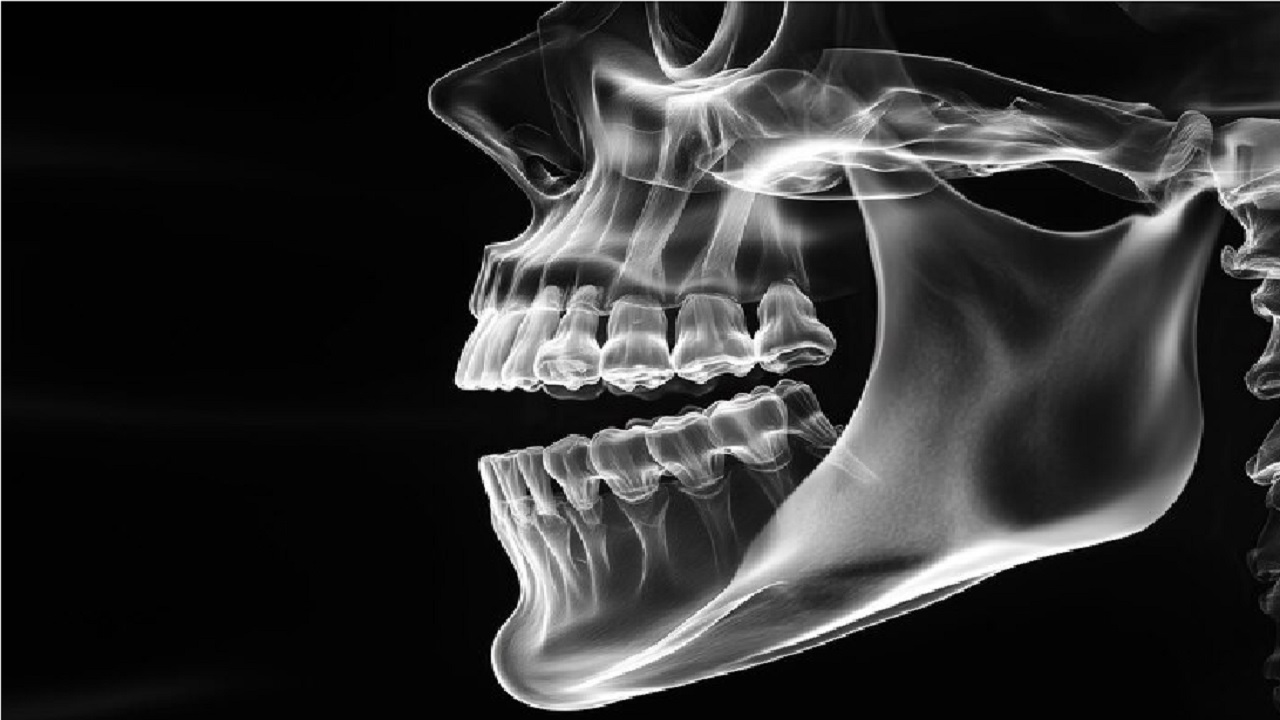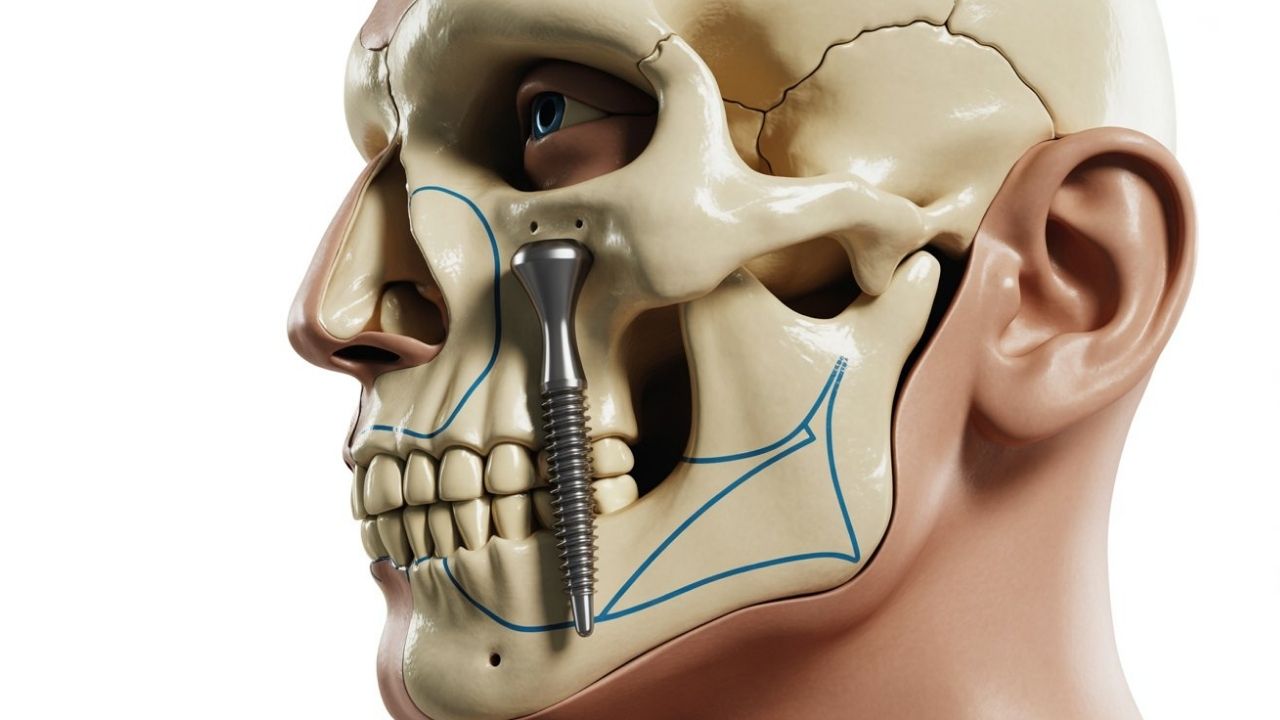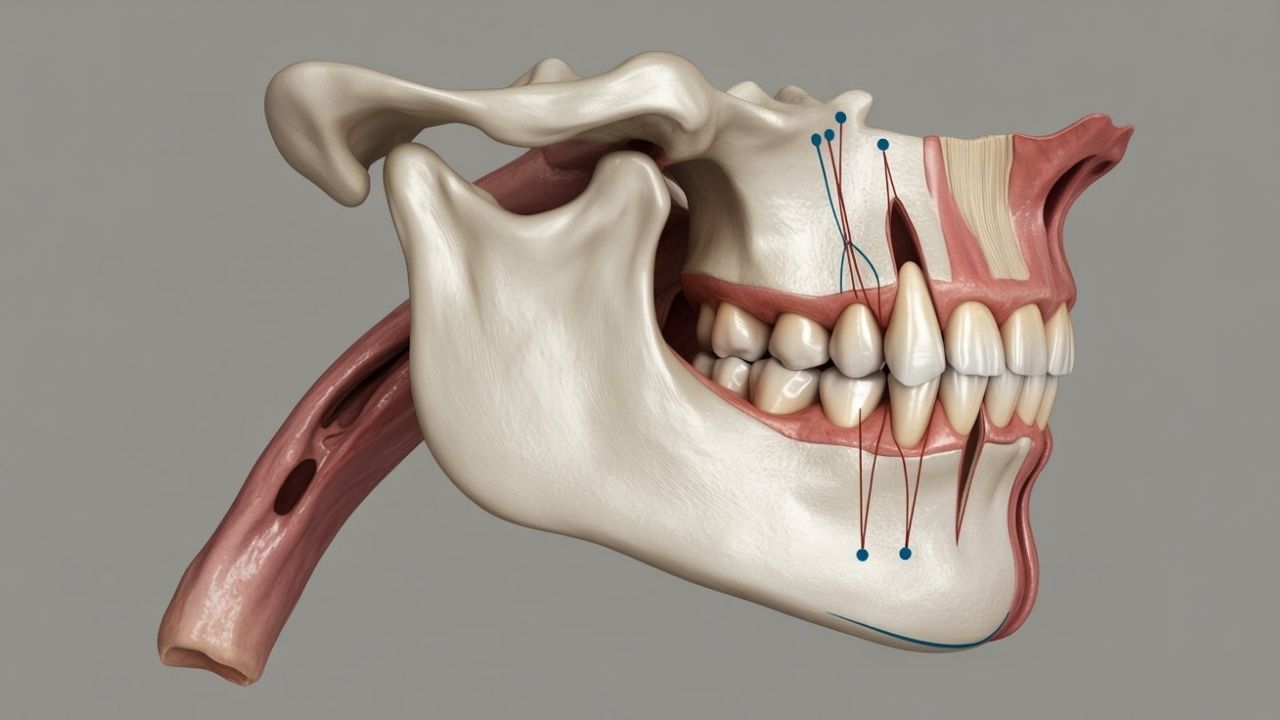Many patients naturally wonder, how painful are zygomatic implants? Zygomatic implants are a revolutionary solution for patients with severe upper jaw bone loss who cannot receive traditional dental implants.
At MAX FAX, specialists ensure a comfortable surgical experience, careful planning, and structured recovery to minimize discomfort. This article explores the procedure, recovery timeline, pain management, expert insights, and patient experiences, giving readers a comprehensive understanding.
What is Zygomatic Implant? How Painful are Zygomatic Implants?
How painful are zygomatic implants? Zygomatic implants differ significantly from traditional dental implants because of their length and placement in the cheekbone. They are ideal for patients with severe bone loss in the upper jaw, eliminating the need for invasive bone grafting procedures.
MAX FAX specialists highlight that while these implants are slightly more complex, modern surgical techniques and anesthesia ensure minimal pain. Understanding how zygomatic implants work helps patients set realistic expectations for both the procedure and the recovery period that is necessary for reducing anxiety.

The Surgical Steps
The surgical procedure is carefully designed to minimize discomfort while ensuring long-term stability. First, MAX FAX specialists conduct a detailed assessment using 3D imaging to determine precise implant placement.
Patients receive local anesthesia or IV sedation for maximum comfort throughout the operation. The implants are then anchored into the cheekbone, providing strong support for dental prosthetics. In many cases, a temporary prosthesis is immediately provided, allowing patients to leave with functional teeth and minimal discomfort.
Recovery Timeline of the Zygomatic Implants
How painful are zygomatic implants? Recovery from zygomatic implants is usually faster and less complicated. Most patients experience mild to moderate pain for three to five days, along with swelling and bruising that mostly resolve within two weeks.
Following MAX FAX’s post-operative instructions ensures smoother healing and helps manage discomfort effectively. Adhering to dietary recommendations, using medications, and attending follow-up visits all play a role in accelerating recovery and preventing complications.

Typical Recovery Stages
| Time Frame | Symptoms | Tips |
| First 24–48 hours | Swelling, mild pain | Use cold compresses, take prescribed pain medication |
| Week 1 | Bruising reduces, mild discomfort | Soft diet, gentle oral hygiene |
| Week 2–4 | Return to most daily activities | Avoid hard or spicy foods |
| Month 1–3 | Full tissue healing | Attend follow-up visits at MAX FAX for monitoring |
What are Pain Management Strategies?
How painful are zygomatic implants? Effective pain management is crucial to ensure patient comfort and faster recovery. Proprf. Dr. Celal Candirli and his team provide tailored strategies including medications, cold compresses, and dietary adjustments. Over-the-counter pain relievers such as ibuprofen are often recommended, while stronger prescription medications may be provided for patients with higher sensitivity.
Cold compresses help reduce swelling and numb sensitive areas, while soft foods prevent irritation near the implant site. Maintaining oral hygiene and avoiding stress on the implants further minimizes discomfort and promotes optimal healing.
Medications
MAX FAX specialists recommend medications to manage post-operative pain effectively. Ibuprofen or acetaminophen is usually sufficient for mild discomfort, while stronger prescriptions may be used for patients with higher sensitivity. Taking medications as instructed ensures optimal pain control and prevents unnecessary complications. Most patients report that following this regimen allows them to feel comfortable within a few days.

Cold Compress Techniques
Cold compresses are a simple yet effective method to manage swelling and pain after zygomatic implant surgery. Applying a cold pack to the cheek area for 15–20 minutes every few hours during the first two days reduces inflammation and numbs discomfort. MAX FAX advises using cold compresses in combination with medications for the best results. Regular use significantly improves overall comfort during the initial recovery period.
Diet Adjustments
Eating soft foods is essential during the first week after surgery. Yogurt, mashed potatoes, soups, and smoothies reduce irritation at the implant site. Avoiding crunchy, hot, or spicy foods prevents additional discomfort and protects the healing tissues. Proper nutrition and hydration support recovery and help patients feel more comfortable during this period.

Comparing Zygomatic Implants Pain with Traditional Implants
How painful are zygomatic implants? Zygomatic implants may cause slightly more discomfort than traditional implants because they are anchored in the denser cheekbone. However, patients at MAX FAX report that pain is manageable with proper care and medications.
The initial discomfort is generally brief, lasting a few days, and the benefits of avoiding bone grafting outweigh this temporary increase in pain. With modern surgical techniques and expert guidance, patients often find that their experience is far more comfortable than expected.
What are Factors That Influence Pain Levels?
How painful are zygomatic implants? Several factors can influence how painful zygomatic implants feel. These include the patient’s pain tolerance, the extent of bone loss, the precision of the surgical technique, and the type of anesthesia used. MAX FAX carefully evaluates each patient before surgery to tailor the procedure and minimize discomfort.
Being aware of these variables helps patients prepare mentally and physically, reducing anxiety and improving overall recovery outcomes.
Post-Operative Care Tips to Minimize Discomfort
How painful are zygomatic implants? Proper post-operative care is essential for managing pain and ensuring successful healing. MAX FAX recommends maintaining excellent oral hygiene, attending all follow-up appointments, and avoiding smoking and alcohol during recovery.
Using cold compresses, adhering to dietary guidelines, and taking prescribed medications help reduce discomfort. Following these tips not only minimizes pain but also supports faster healing and prevents complications that could extend recovery time.

What are Common Side Effects and How to Handle Them?
It is normal to experience temporary side effects after zygomatic implant surgery. Swelling, bruising, minor bleeding, and mild discomfort may occur, but they are typically short-lived. MAX FAX advises patients to manage these effects with medications, cold compresses, and gentle oral care. Monitoring recovery and attending follow-up visits ensures that any unusual symptoms are promptly addressed, keeping the recovery process safe and comfortable.
Real Stories from Patient Experiences
Many patients at MAX FAX share that how painful are zygomatic implants? is often less severe than expected. Real-life testimonials provide reassurance to prospective patients about the procedure’s comfort and recovery. Most patients report returning to normal activities within a week while experiencing only mild discomfort. These stories help new patients understand what to expect and feel confident in choosing zygomatic implants.
MAX FAX Expert Insights
Experts at MAX FAX emphasize that preparation, proper anesthesia, and post-operative care are key to a comfortable experience. Understanding the procedure, recovery timeline, and pain management strategies helps reduce anxiety and perceived pain. MAX FAX’s modern techniques ensure that discomfort is minimized and healing proceeds efficiently. By addressing how painful are zygomatic implants? clearly, patients feel more informed and reassured throughout their treatment journey.
How Painful are Zygomatic Implants?
In summary, how painful are zygomatic implants? varies among patients, but with proper surgical technique, pain management, and post-operative care, discomfort is generally mild and short-lived. MAX FAX provides expert guidance, personalized care, and modern surgical methods to ensure patient comfort and successful outcomes.
Understanding the procedure, recovery timeline, and pain management strategies helps reduce anxiety and makes the entire process smoother. For patients with severe upper jaw bone loss, zygomatic implants offer a reliable and effective solution with manageable discomfort.
Frequently Asked Questions
How painful are zygomatic implants? Understanding what to expect after zygomatic implant surgery can help reduce anxiety and prepare patients for recovery. At MAX FAX, we often hear common questions about pain levels, recovery times, and strategies to manage discomfort.
The following FAQ section addresses the most frequent concerns and provides clear, practical answers. Knowing what to expect empowers patients to have a smoother and more comfortable experience with zygomatic implants.
Is Zygomatic Implant Pain Worse Than Traditional Implants?
Zygomatic implants can cause slightly more discomfort than traditional implants because they are anchored in the cheekbone, which is a denser area of bone. However, most patients report that pain is manageable when using prescribed medications and following proper post-operative care.
MAX FAX ensures that surgical techniques are precise and minimally invasive to reduce discomfort. Additionally, patients often find that the brief increase in pain is outweighed by the long-term benefits of zygomatic implants.
How Long Does the Pain of This Procedure Last?
Mild to moderate pain typically lasts between three to seven days after surgery. Swelling and bruising may continue for up to two weeks, but they gradually decrease with proper care.
Following MAX FAX’s post-operative instructions, such as using cold compresses and maintaining a soft diet, helps accelerate healing. Most patients are able to return to normal daily activities within one to two weeks while experiencing only minor discomfort.
Can Pain Be Completely Prevented?
Complete prevention of pain is not possible because surgery inherently causes some tissue irritation and inflammation. However, careful post-operative care, including medications, cold compresses, and dietary adjustments, can significantly reduce discomfort.
MAX FAX emphasizes that patients who follow these guidelines experience much less pain and faster recovery. Overall, proactive management makes the process far more comfortable than many expect.




